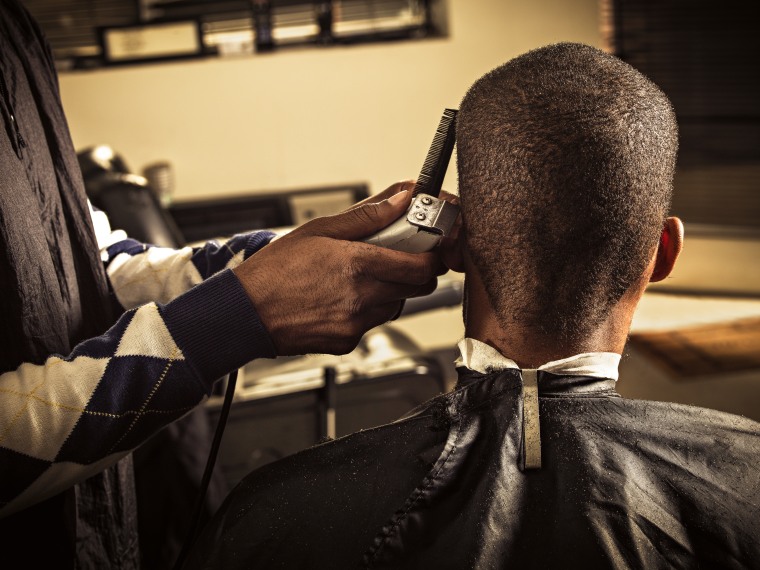Barbershops have always been a fixture of the Black community, where men talk about everything from sports to family to pop culture. Amid the abysmal voter turnouts in Philadelphia’s local elections, a new tech startup will soon start recruiting barbers to help galvanize Black voters and unravel some of the issues that are keeping African-American men away from the polls.
The non-partisan initiative dubbed “Sharp Insight,” is one of the 22 winners that share a $3.2 million grant from the Knight Foundation News Challenge, which sought to increase civic participation in the election process and encourage ideas that better inform voters.

“I go the barbershop at least two to three times a month, and we talk about everything there,” said Duerward Beale, the startup’s founder, who pitched his idea at The Paley Center for Media’s “Tech It Out: 2016 Voting Innovation & Outreach” event last week. “So why not talk about the elections, getting out the votes and participating civically? Men have to know how their votes have power and how it affects them and their families.”
Beale, also known as “Woody” by his friends, told NBCBLK that his program would target and recruit at least 50 barbers across the majority-minority city. They will work with an outreach team and learn how to disseminate information to their clients about the 2016 presidential elections, issues that are affecting the community and conduct surveys.
“We want to reach at least 60,000 men directly, and we want to learn from [them] about the reasons why they have little interest in civic issues and the community,” said Beale. “From that, we can create the messaging based on what they want. For us, it is about understanding their challenges.”
The voter turnout in Philadelphia has been a problem, according to multiple reports. In this year’s primary election, only 269,042 people voted, out of the 992,430 Philadelphians who were registered.
Philadelphia’s disenchanted Black men
One key element of the project is to dispel misinformation some men may have about their run-ins with the law, a major barrier that had deprived many from registering to vote, according to Beale.
“When we register people to vote, a lot of guys would tell us ‘this situation happened’ and once they explained it we understand they have problems with the law,” he said. [But] they have some misinformation. We have to connect the dots for them.”

According to a New York Times report, Philadelphia is ranked third in the nation after New York and Chicago for 36,000 “missing” black men, largely because they’re either killed at a young age or behind bars.
Those incarcerated face far reaching implications, amid felony disenfranchisement laws, which vary state by state. A 2012 report by The Sentencing Project shows that more than 5.85 million Americans adults who've been convicted were barred from voting in elections leading up to 2010. Of this amount, more than 1.4 million are African-American men.
Under Pennsylvania law, voting rights are restored upon release from prison, except for someone living in a halfway house on pre-release status. Only Maine and Vermont do not restrict voting rights from anyone with a felony conviction, including those serving time.
A good place to boost the Black male vote
Shaun Gabbidon, Ph.D., a professor of criminal justice at Penn State Harrisburg in Pennsylvania, believes Sharp Insight is an “effective” strategy to “target the unreachable population.”
“Black barbershops are a good place to start and encounter men who you won’t necessarily encounter or find at other avenues,” said Gabbidon.
When asked why men vote less frequently than women, he said one reason is “a lack of trust” in the U.S. political system.
Using the barbershop to test whether it could boost civic participation is not new. Beale, who is the executive director of the Philadelphia based Youth Outreach Adolescent Community Awareness Program or YOACAP, had organized grassroots work with barbershops and beauty salons to register eligible voters, offer high blood pressure testing and increasing awareness about sexually transmitted diseases.
Now, he just wants to “take it a step further.”
